Services
Services
Men’s Health
Hormone Optimization Therapy
Men’s Health
Hormone Optimization Therapy
Low Testosterone Symptoms:
- lack of focus
- depression
- constant Fatigue
- low motivation
- decreased muscle mass
- abdominal fat
- low libido and erectile problems
- decreased athletic performance
Optimal Testosterone Symptoms
- elevated mood
- mental focus
- higher motivation
- increased confidence
- increased muscle mass
- decreased body fat
- strong erections and high sex drive
- maximum athletic performance
When we talk about men’s hormones, we primarily think about testosterone. It is the strongest and most important male sex hormone and it is responsible for regulating many other processes in the body such as fat storage, inflammation, brain function, insulin and glucose regulation, and many others, all of which can lead to a cascade of negative symptoms, both mentally and physically. Furthermore, a deficiency in testosterone can lead to an increased risk of age-related diseases such as diabetes and heart disease.
As we age, our bodies become less efficient at producing adequate amounts of testosterone and our levels begin to drop. Surprisingly to most, this can begin to happen around age 30, and potentially sooner if there is an underlying condition. And the bad news is, this age is becoming even lower when you consider the barrage of endocrine-disrupting chemicals that are now so prevalent in our everyday lives. It is more important than ever to take control of your health and get on track to living an optimized life.
While testosterone is a big piece of the puzzle, it is not the whole picture. At Revv, we test for a variety of hormone deficiencies, including a comprehensive thyroid panel. Hypothyroidism (low thyroid function) is often overlooked or completely ignored altogether in men. Coincidentally, many of the symptoms of low thyroid overlap with the symptoms of low testosterone. This is a reason many men may still be experiencing negative symptoms even if their testosterone lab values are optimal. We will take an extensive look at your health and provide you with a full spectrum of hormone optimization so that you can live life to the fullest.
Low Testosterone Symptoms:
- lack of focus
- depression
- constant Fatigue
- low motivation
- decreased muscle mass
- abdominal fat
- low libido and erectile problems
- decreased athletic performance
Optimal Testosterone Symptoms
- elevated mood
- mental focus
- higher motivation
- increased confidence
- increased muscle mass
- decreased body fat
- strong erections and high sex drive
- maximum athletic performance
When we talk about men’s hormones, we primarily think about testosterone. It is the strongest and most important male sex hormone and it is responsible for regulating many other processes in the body such as fat storage, inflammation, brain function, insulin and glucose regulation, and many others, all of which can lead to a cascade of negative symptoms, both mentally and physically. Furthermore, a deficiency in testosterone can lead to an increased risk of age-related diseases such as diabetes and heart disease.
As we age, our bodies become less efficient at producing adequate amounts of testosterone and our levels begin to drop. Surprisingly to most, this can begin to happen around age 30, and potentially sooner if there is an underlying condition. And the bad news is, this age is becoming even lower when you consider the barrage of endocrine-disrupting chemicals that are now so prevalent in our everyday lives. It is more important than ever to take control of your health and get on track to living an optimized life.
While testosterone is a big piece of the puzzle, it is not the whole picture. At Revv, we test for a variety of hormone deficiencies, including a comprehensive thyroid panel. Hypothyroidism (low thyroid function) is often overlooked or completely ignored altogether in men. Coincidentally, many of the symptoms of low thyroid overlap with the symptoms of low testosterone. This is a reason many men may still be experiencing negative symptoms even if their testosterone lab values are optimal. We will take an extensive look at your health and provide you with a full spectrum of hormone optimization so that you can live life to the fullest.
WoMen’s Health
Hormone Optimization Therapy
WoMen’s Health
Hormone Optimization Therapy
Millions of women in the U.S. suffer from hormonal imbalances and deficiencies. The truth is, women’s hormonal health has been terribly neglected by modern medicine. More often than not, their symptoms get completely ignored or misdiagnosed, which ultimately leads to being mistreated and a worsening of symptoms.
Bodies
As a woman ages, their body begins to transition away from being a child bearer, and as a result much of their reproductive and restorative attributes begin to decrease. Most women recognize that something is off or wrong, but have very little insight on where to start. They will often look to their primary care doctor, but the truth is most of these doctors lack the education and training in hormone therapy to properly diagnose and treat these symptoms. Furthermore, because our medical industry is so heavily influenced by the pharmaceutical industry, many practitioners are focused on sick care rather than preventative and wellness care.
Signs of insufficient hormones:
- Moodiness and Irritability
- Fatigue
- Weight Gain
- Depression
- Decreased Libido
- Painful and irregular menstrual cycles
- Trouble sleeping
- Night sweats
- Brain fog
- Anxiety
- Hair loss
- Inability to lose weight
- Loss of muscular strength
- Decreased skin elasticity
Recognition
Proper recognition, diagnosis and treatment of hormone deficiency is essential to good health, vitality, and longevity. These hormonal imbalances and deficiencies not only accelerate aging but they are also the root cause of many chronic diseases and health problems, which represent a very serious threat to women’s health. Some of the early symptoms of a hormone deficiency are weight gain and depression, which can occur when levels of testosterone, estrogen and progesterone begin to decrease. This is often where women could be misdiagnosed and prescribed with something like an antidepressant, which will only mask the symptoms and end up causing more harm. Proper screening and accurate diagnosis are absolutely crucial to living an optimized life. The correct hormonal treatment should always be dependent on each woman’s unique biochemistry. This should include the use of hormones that are identical to those produced in the female human body, and they should mimic the natural patterns of a woman’s cycle.
Disruption
The earlier a woman begins to experience a disruption in hormone production the greater the risk of experiencing serious and difficult to treat health conditions later in life. As we age, our hormones become increasingly deficient and imbalanced. The longer these are allowed to persist, the more difficult they are to treat. This is why it is absolutely crucial to be proactive in your own health and consult with a doctor that is properly trained and has many years of clinical experience in the field of hormone optimization.
Millions of women in the U.S. suffer from hormonal imbalances and deficiencies. The truth is, women’s hormonal health has been terribly neglected by modern medicine. More often than not, their symptoms get completely ignored or misdiagnosed, which ultimately leads to being mistreated and a worsening of symptoms.
Bodies
As a woman ages, their body begins to transition away from being a child bearer, and as a result much of their reproductive and restorative attributes begin to decrease. Most women recognize that something is off or wrong, but have very little insight on where to start. They will often look to their primary care doctor, but the truth is most of these doctors lack the education and training in hormone therapy to properly diagnose and treat these symptoms. Furthermore, because our medical industry is so heavily influenced by the pharmaceutical industry, many practitioners are focused on sick care rather than preventative and wellness care.
Signs of insufficient hormones:
- Moodiness and Irritability
- Fatigue
- Weight Gain
- Depression
- Decreased Libido
- Painful and irregular menstrual cycles
- Trouble sleeping
- Night sweats
- Brain fog
- Anxiety
- Hair loss
- Inability to lose weight
- Loss of muscular strength
- Decreased skin elasticity
Recognition
Proper recognition, diagnosis and treatment of hormone deficiency is essential to good health, vitality, and longevity. These hormonal imbalances and deficiencies not only accelerate aging but they are also the root cause of many chronic diseases and health problems, which represent a very serious threat to women’s health. Some of the early symptoms of a hormone deficiency are weight gain and depression, which can occur when levels of testosterone, estrogen and progesterone begin to decrease. This is often where women could be misdiagnosed and prescribed with something like an antidepressant, which will only mask the symptoms and end up causing more harm. Proper screening and accurate diagnosis are absolutely crucial to living an optimized life. The correct hormonal treatment should always be dependent on each woman’s unique biochemistry. This should include the use of hormones that are identical to those produced in the female human body, and they should mimic the natural patterns of a woman’s cycle.
Disruption
The earlier a woman begins to experience a disruption in hormone production the greater the risk of experiencing serious and difficult to treat health conditions later in life. As we age, our hormones become increasingly deficient and imbalanced. The longer these are allowed to persist, the more difficult they are to treat. This is why it is absolutely crucial to be proactive in your own health and consult with a doctor that is properly trained and has many years of clinical experience in the field of hormone optimization.

